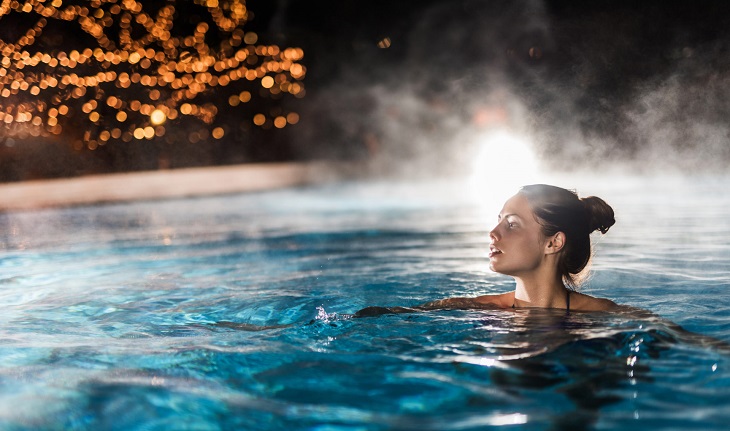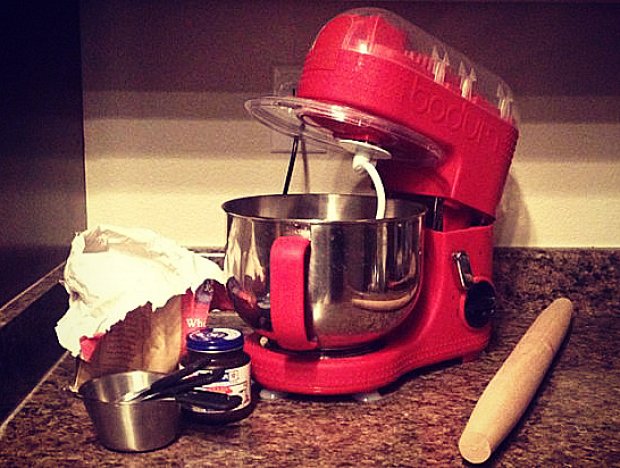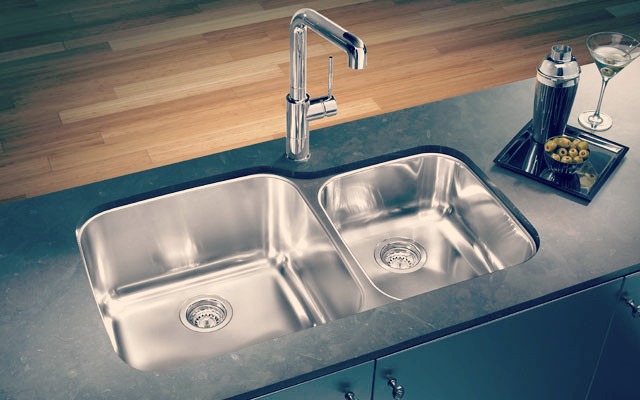The fun, relaxing pool season doesn’t have to end when summer steps aside and colder days arrive. There are two options that can heat up your indoor pool water and allow you to enjoy swimming and lounging even when the temperatures outside are low. In order to make the right choice, you need to be properly informed.

Swimming Pool Heater
Pool heaters are the most popular option. They utilize natural gas, propane or electricity in order to do their job. The water passes through the heater and after the heat exchanger heats the water, it returns it back to your pool. The process is fairly quick, and you won’t notice when the water makes the trip. Moreover, this piece of equipment will work regardless of how low outside temperatures get.
The reasons for these heaters’ popularity are viable, but there are a few additional considerations. When thinking about whether this is the right choice for you, you need to have in mind the cost of natural gas or propane because it will definitely have an impact on your bills. When compared, pool heaters that run on natural gas are slightly more cost-effective in the long run because gas is cheaper than propane. Another option besides these two are electric swimming pool heaters. This is for those of you whose homes don’t have propane or gas line. It will get the job done, the water will reach the wanted temperature, but it will surely raise your electricity bills.
Swimming Pool Heat Pump
Swimming pool heat pumps use the ambient air that surrounds the unit to heat your pool water. Simply put, they work in reverse of your home air conditioning unit. The air passes over an evaporator coil using a heated refrigerant that heats the water and returns it back into the pool. Granted, a high-quality swimming pool heat pump is an investment, but since it doesn’t require gas or propane lines to be installed, it makes running and utility costs much lower.
In the long run, this fact makes heat pumps the more efficient way to heat your pool water. Instead of additional power lines (gas or propane), you can install the heat pump into your already existing pool filtration system, or you can use separate heating provisions with a dedicated circulation pump. Plus, pool pumps usually have an in-built dual stage timer that allows you to set run times. What should raise your concerns though is the fact that heat pumps will not be as efficient when the air temperature gets lower than 10 degrees Celsius.
Regardless of your choice, just make sure that your decision is based on your needs. Do your research, make comparisons and take all details into consideration. That way you will leave little to no room for mistakes.






















